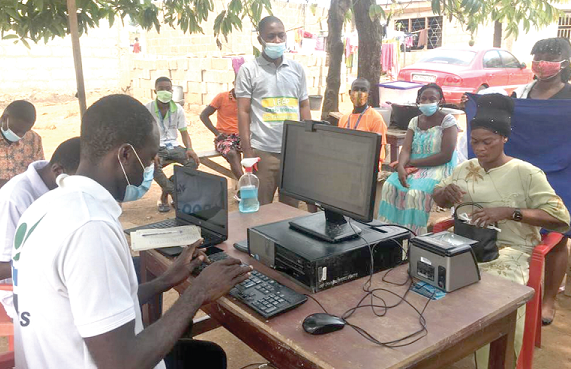
Registration of LEAP beneficiaries onto NHIS begins
The government has started the mass registration of beneficiaries of the Livelihood Empowerment Against Poverty (LEAP) programme onto the National Health Insurance Scheme (NHIS).
The nationwide programme, which will target all 335,000 beneficiary households, is funded by the government, with support from the World Bank, at a cost of about GH¢3 million.
Advertisement
About 1.5 million people already on the LEAP programme do not have NHIS cards, while some of the cards are also damaged or expired.
The Ministry of Gender, Children and Social Protection (MoGCSP) is coordinating the exercise, in collaboration with the National Health Insurance Authority (NHIA).
The Deputy Director of the LEAP programme, Mr Myles Ongoh, who disclosed this to the Daily Graphic in an interview in Accra last Monday, said the exercise was intended to reduce the cost of healthcare expenditure of the beneficiaries as the country grappled with the scourge of the COVID-19 pandemic.
Significance
Mr Ongoh said the enrolment of the beneficiaries onto the NHIS scheme was a timely intervention that would enable them to invest the cash grants from the LEAP programme in productive ventures to help improve on their wellbeing.
“We believe that providing access to healthcare for the beneficiary households would protect them from the catastrophic effects of out-of-pocket healthcare costs,” he added.
Mr Ongoh further said the government would enter into similar collaborations to introduce other interventions to complement cash transfers to the beneficiaries.
“The burden of the COVID-19 and its associated socio-economic shocks is affecting all, including the poor and the vulnerable,” he said.
Mr Ongoh said the beneficiaries were now placed under the exempt category of the NHIS Act, 2012, Act 852.
As a result, the deputy director said, they were excluded from paying premium and processing fees to register onto the scheme or renew their membership.
“At the district level, beneficiaries can now walk into the offices of the assemblies and the Social Welfare office to register or renew their expired NHIS cards.
“That is why it is important we embark on this mass registration to ensure that everyone is captured under the NHIS,” he added.
As of September last year, about 73 per cent of LEAP beneficiaries had been enrolled onto the NHIS, according to data from MoGCSP.
Deployment
Mr Ongoh said a team had been deployed to all districts in the country to assist in the exercise, which was expected to be completed by the end of the first quarter of the year.
He commended the NHIA for its support in providing access to healthcare, especially for LEAP beneficiaries.
Mr Ongoh also expressed gratitude to the World Bank for providing funding for the exercise.
The Head of Payment of the LEAP Programme, Mr Richard A. Nartey, also expressed appreciation to regional and district Social Welfare officers for their frontline role in the national exercise.
LEAP programme
The payment structure of the programme was designed in a way that discouraged beneficiaries from being adamant in pursuing alternative sources of income.
It was introduced to help reduce poverty by smoothening consumption and promotion of human capital development among extremely poor households in the country.
To help mitigate the economic impact of the pandemic, the LEAP programme provided an additional one-off round of cash transfers for beneficiaries in May last year.
Unable to distribute cash transfers at community sites, the programme relied on contactless transfers. The beneficiaries used electronic benefit transfer cards to withdraw cash from ATMs, with LEAP providing a top-up benefit of GH¢10 for urban beneficiaries and GH¢20 for rural beneficiaries to help defray the cost of transportation to banks.




